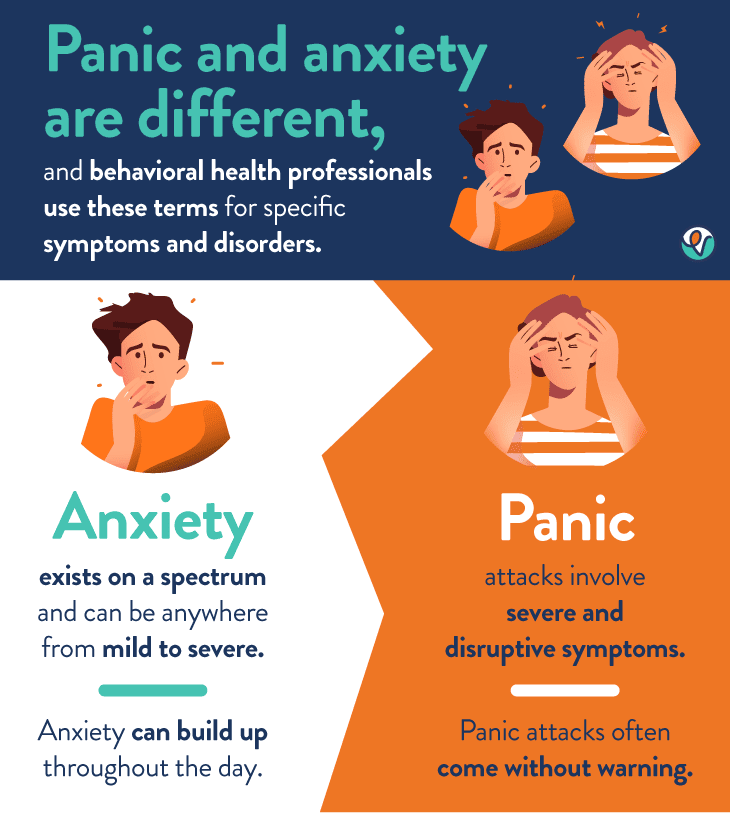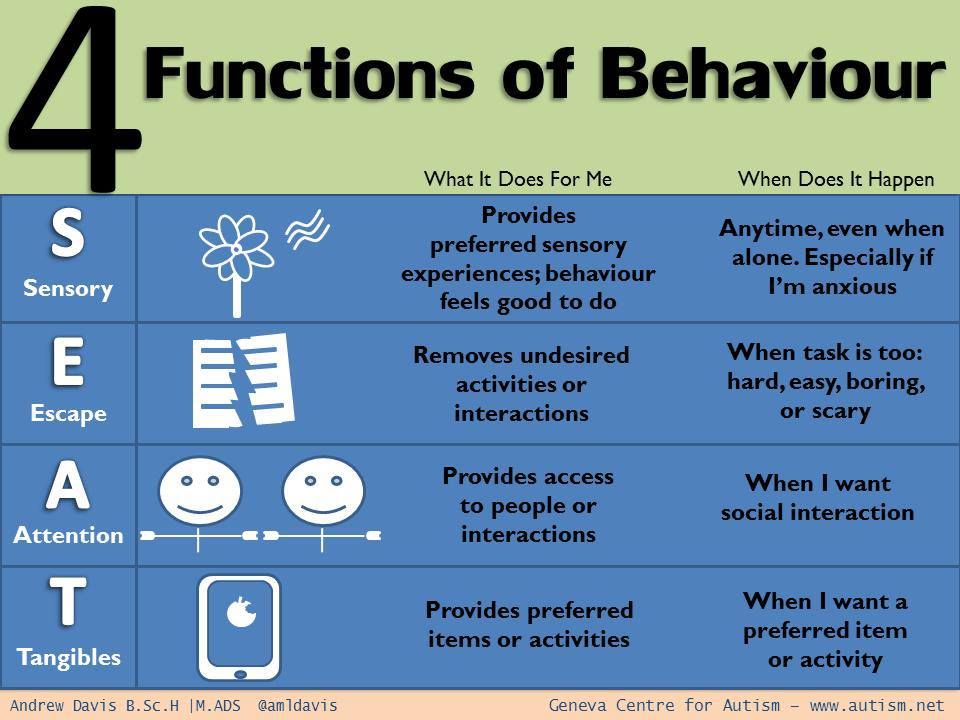Disagreements in relationships
7 Most Common Relationship Disagreements and How to Fix Them
Relationships
- Copy By: Josie Santi
- Feature Image By: Cottonbro | Pexels
You know you love your significant other, and you know that they love you. You also know the right way to argue (or at least practice the right way!) and how to exactly get the relationship you want. So why is that same argument still rearing its ugly head time and time again? You know the argument – maybe it’s how your partner forgot to stop by the grocery store again, or maybe they nag you about always being on your phone – the argument that just keeps coming, especially in times where one or both of you are stressed out.
Maybe it’s a small tiff or maybe it turns into a blow out fight, but either way, it’s not helping you support each other, be there for each other, and feel as happy as possible together. Get out of your relationship rut and fix those fights once and for all; here’s how to fix 7 of the most common relationship issues, so you never have to fight about it again.
1. One (or both) of you feeling misunderstood
While basically all relationship disagreements have to do with miscommunication (or lack of communication altogether), certain disagreements turn into longterm resentment when you or your partner are not feeling listened to or heard.
The Fix
While it may sound silly, make an actual appointment with each other to talk through any problem. Attempting to voice hurt feelings before bed after a long, busy day or bringing up unrelated issues when your partner forgets to unload the dishwasher is a recipe for miscommunication and feeling neglected. Make an appointment during the week to sit down, put away your cell phones, and discuss how you feel. Always take turns talking, and if you can’t communicate without getting too heated, try going to a public place like a restaurant or park to have the conversation.
2. Dividing up household chores
If you live together, there’s likely been at least one fight over your partner “never” unloading the dishwasher or how they’ve taken out the trash for the 3rd week in a row while you keep forgetting. There might even have been the screaming match or two over the occasional empty toothpaste tube at 10pm, or the forgotten grocery store run to get milk for tomorrow’s cereal. Whether you both have jobs outside the home, or only one person has one (or multiple) jobs, it’s important to divide up household chores to avoid resentment.
The Fix
Write down all household chores (everything from weekly grocery shopping to occasionally changing the air filter), and then fairly divide it up, taking preferences into account. If your partner loves to cook, let them make dinner 5 nights a week and agree that you’ll clean up. If you hate laundry but your partner doesn’t mind it, they can do the laundry for the week and you pick up the dry cleaners. Also be open to alternatives – if you both hate housework, see if you can make room in the budget for a cleaning service, or if you both hate cooking, look into meal delivery programs like Blue Apron. You can be creative when divvying up the chores, but just make sure that it feels fair to both of you.
Also be open to alternatives – if you both hate housework, see if you can make room in the budget for a cleaning service, or if you both hate cooking, look into meal delivery programs like Blue Apron. You can be creative when divvying up the chores, but just make sure that it feels fair to both of you.
Source: Wendy Wei | Pexels
3. Not making your relationship a top priority
Picture this – you’ve been together for what feels like forever, you’re extremely busy working on your career/kids/housework/all the above, and you’re lucky if you get to kiss your significant other goodnight before bed. Sound familiar? While it’s a blessing to have someone so constant in your life you know they will be there even when you don’t tend to your relationship, it doesn’t mean you can take a blessing for granted. Make sure neither of you are putting the other on the back burner, even when life gets busy.
The Fix
Here’s the thing – it would be easy to say “go on a date night more often,” or “give them more compliments,” and while these strategies might totally help certain couples, other couples may be too tired/busy/stressed, and end up fighting through date night, or compliments might not be noticed and could leave you feeling uncared for when you’re trying.
So the trick for making sure you both feel that the relationship is a top priority is the good old reliable love languages – know your partner’s love language and plan concrete ways to act on their love language every day. For your own sake, wake up every morning and think of at least 3 things you’re grateful for in your partner – prioritizing your relationship won’t feel like trying when you genuinely appreciate it.
4. Money issues
No, money can’t buy love, but it might be able to ruin it… whether it’s disagreement over who pays for what, resentment over dependency, which financial goals to set, or very different spending habits, money can not only cause fights in a relationship, but can lead to breakups. Financial status is understandably a common anxiety for many people, and a difference in financial values can represent a deal-breaking difference in bigger morals for even strong couples.
The Fix
Be upfront about your financial situation and spending habits from the start.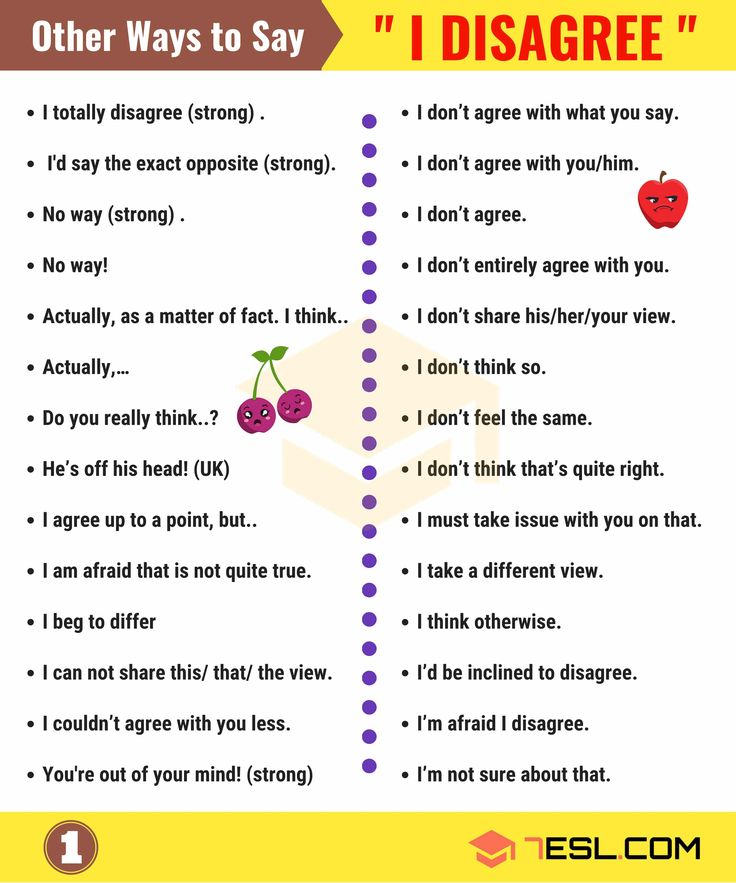 Have a “money talk” with your significant other before any big step like moving in together, getting married, or having a child. Acknowledge that it’s likely you both have different habits – one might be a spender and one might be a saver – and there are positives and negatives to both lifestyles. Think about money as the life you build together, not your money, effort, and work against theirs.
Have a “money talk” with your significant other before any big step like moving in together, getting married, or having a child. Acknowledge that it’s likely you both have different habits – one might be a spender and one might be a saver – and there are positives and negatives to both lifestyles. Think about money as the life you build together, not your money, effort, and work against theirs.
Source: Juliet Furst | Unsplash
5. Lack of intimacy
Sex might feel more like an occasional chore than an important part of the relationship when your schedules gets busy, the kids are up all night, or you’ve just been together for a really, really long time. Plus, partners who are emotionally compatible may not always be sexually compatible. However, unfulfilling intimacy can cause issues in relationships because physical touch releases hormones that bring you closer together and keeps your chemistry alive.
The Fix
Focus on your physical touch outside of the bedroom – hold hands often, give hugs out of the blue, and kiss more often than routine (like saying hello or goodbye).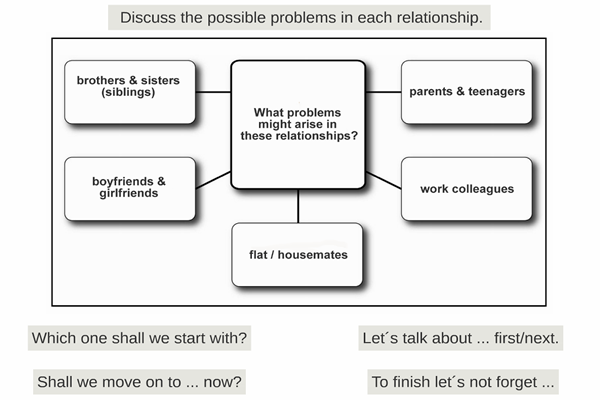 Openly discuss what both of you want, and make it a priority to provide a safe space to explore together – don’t judge your partner, and don’t be with someone who would judge you. Maintain a spark in the relationship by prioritizing your intimacy, and communicate with your partner if you’re not feeling satisfied with your sex life. It may be hard to be so honest, but dissatisfaction is not an immediate deal breaker – inability to communicate and change together is.
Openly discuss what both of you want, and make it a priority to provide a safe space to explore together – don’t judge your partner, and don’t be with someone who would judge you. Maintain a spark in the relationship by prioritizing your intimacy, and communicate with your partner if you’re not feeling satisfied with your sex life. It may be hard to be so honest, but dissatisfaction is not an immediate deal breaker – inability to communicate and change together is.
6. Growing apart
We’ve all read the cliché joint statement after a celebrity breakup that says some BS like, “we still love and care for each other, but simply have grown apart…” (p.s., Miley and Liam, if you’re reading this, my heart is still breaking!!). While there’s a lot of truth to relationships not working out because of “growing apart,” it is something that can be fixed with the right effort and care. As humans, we’re always growing – in your relationship, you can either grow together or grow apart.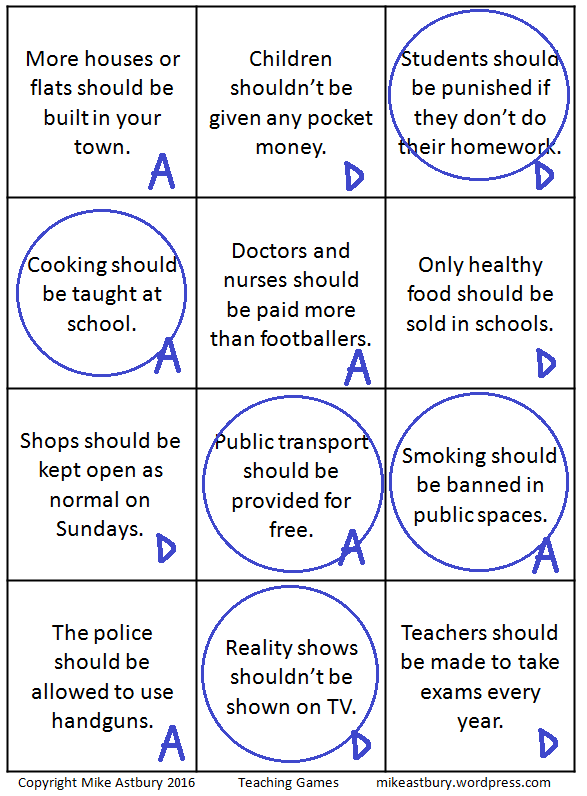
The Fix
Be okay with change. A relationship should mean, by definition, a safe space to evolve together – encourage your partner to always be evolving and be their best self, without setting expectations or limitations. Be aware of how their change overtime affects your insecurities, like if putting more hours into their new business is making you feel less important, instead of feeling proud of all their hard work. Always be communicating every feeling you have, and enjoy watching your partner grow, making sure to share your growth with them, too. Let them in on any career success or life milestone, sharing every new phase of together.
Source: Wendy Wei | Pexels
7. Trust
Yes, whether or not you truly trust each other can make or break a relationship. Trust is more than just will they cheat on me or won’t they. In order to have a lasting, happy, fulfilling relationship you should not only trust your partner’s loyalty, but trust their opinions, their character, and that they always have your best interest at heart.
The Fix
Since you can really only control your own actions, here’s what you can do to increase trust in the relationship – make promises you keep, don’t lie (even little white lies to spare feelings), call when you say you will, don’t say things you don’t mean, and look into past wounds that affect the way you trust – do you feel insecure and unlovable or have you been cheated on? Often times, we don’t trust our partner for no reason besides our own past or insecurities. If that’s the case, it’s not that you don’t trust your partner, it’s that you don’t trust the situation of being in a happy relationship. Be open with your partner about why you feel that way and what you two can do to overcome those feelings.
But if it really is your partner that you don’t trust – they’ve lied to you before, they don’t call when they say they will, or they’ve done things behind your back that hasn’t made you feel good – maybe it’s time to rethink if it’s a relationship worth having. Not all disagreements can (or should) be fixed.
Not all disagreements can (or should) be fixed.
KEEP READING
- Tweet
- Pin
Conflict resolution - Healthy Relationships
love is respect
Search Close
Leave this site safely
You can quickly leave this website by clicking the “X” in the top right or by pressing the Escape key twice.
To browse this site safely, be sure to regularly clear your browser history.
Got it
Heads up!
Your browser history can be monitored without your knowledge and it can never be wiped completely. Think your internet use might be monitored? Call us at 1.866.331.9474.
Learn more about staying safe online and remember to clear your history after visiting this website.
You can quickly leave this website at any time by clicking the “X” in the top right or by pressing the Escape key twice.
OK
Conflict exists in all relationships. By conflict, we specifically mean verbal disagreements and arguments. People disagree sometimes, and that isn’t necessarily a bad thing — you have the right to have a different opinion from your partner(s). What’s important is that you communicate effectively and in a healthy way that allows you to understand each other better and make your relationship stronger.
Establish boundaries
Everyone deserves to be treated with respect, even during an argument. If your partner swears at you, calls you names, or ridicules you, tell them to stop. If they don’t, walk away and tell you that you don’t want to continue arguing right now.
Find the real issue
Arguments tend to happen when one partner’s wants or needs aren’t being met. Try to get to the real issue behind your argument. It’s possible that you or your partner are feeling insecure or like you aren’t being treated respectfully, and are expressing those feelings through arguments over other things. Learn to talk about the real issue so you can avoid constant fighting that obscures the heart of the problem.
Learn to talk about the real issue so you can avoid constant fighting that obscures the heart of the problem.
Agree to disagree
If you and your partner can’t resolve an issue, sometimes it’s best to just drop it. You can’t agree on everything and it’s important to focus on what matters. If the issue is too important to drop and you can’t agree to disagree, it may be a sign that you’re not compatible.
Compromise when possible
Compromise is a major part of conflict resolution and any successful relationship, but it can be hard to actually achieve. Take turns making decisions about things like what to eat for dinner, or find a middle ground that allows you both to feel satisfied with the outcome.
Consider it all
If the issue you’re arguing over changes how you feel about each other or forces you to compromise your beliefs or morals, it’s important that you stress your position. If not, consider your partner’s views on the issue, why they’re upset, and if compromise is appropriate. Try to contextualize your arguments to give each other room to express your feelings.
Try to contextualize your arguments to give each other room to express your feelings.
Conflict resolution in unhealthy relationships
Conflict is normal, but your arguments shouldn’t turn into personal attacks or efforts to lower the other’s self-esteem. If you can’t express yourself without fear of retaliation, you may be experiencing abuse. Learn more about identifying the signs of abuse and get help.
A common sign of abuse in a relationship is a partner who tries to control or manipulate you.
Some of the common, unjustified reasons abusive partners give for their attempts at power and control include:
- You choose to spend time with others or doing an activity instead of spending time with them.
- They checked your phone and disapprove of your texts or calls.
- They think you’re cheating or untrustworthy.
- You’re not ready to have sex.
- You’re trying to study or work when they want your attention.

If your arguments stem from issues like these, we encourage you to take our healthy relationships quiz to find out more about the dynamics of healthy relationships.
Answers shouldn’t be hard to find.
We're here to help!
- Call 1.866.331.9474
- Chat live now
- Text: LOVEIS to 22522
Visit our page for Privacy Policy. Msg&DataRatesMayApply. Text STOP to opt out.
There is always room for disagreement in a happy relationship
Psy's Daily Advice on Getting Through Hard Times
“My husband got back together with another woman but promised to return. He asked me to wait for him”
How to determine that you are ready for family life: a checklist of 7 questions
Man and woman
The question “How are you?” and the answer "Fine" is just an exchange of pleasantries, we are not talking about real feelings.
Unfortunately, the habit of superficial communication often manifests itself in personal relationships. When a partner asks, “What happened?”, we often want to answer: “Nothing.” If everything is really in order, such an answer is quite appropriate, but if you say this to avoid a conversation, things are most likely not going smoothly in the relationship.
If partners rarely speak honestly and openly with each other, and such conversations occur only in crisis situations, any serious and deep conversation can frighten them. If they get in the habit of regularly telling each other about thoughts and feelings, this will not only strengthen the relationship, but also teach them how to better deal with any difficult problems that may arise.
But how can we create an atmosphere of trust in relationships that allows us to speak frankly about what is on our minds, to criticize constructively and take criticism calmly? This needs to be learned - preferably from the beginning of the relationship.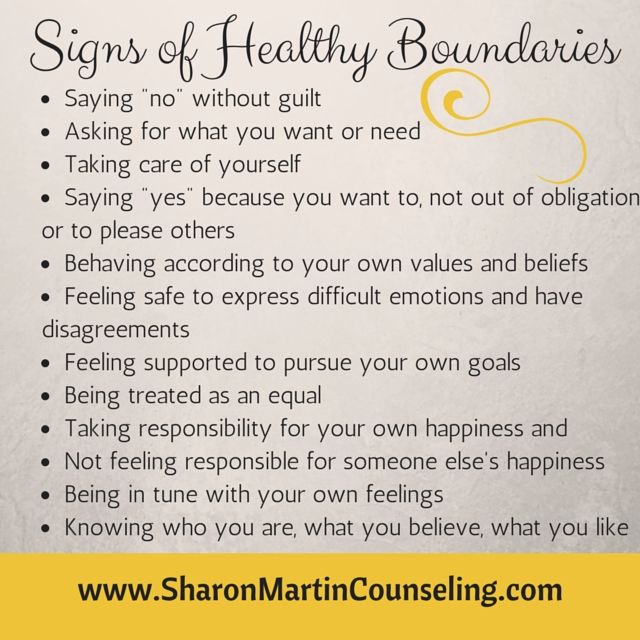 Honesty in communication requires both the ability to soberly evaluate themselves. Everyone should know their sore spots, fears and shortcomings.
Honesty in communication requires both the ability to soberly evaluate themselves. Everyone should know their sore spots, fears and shortcomings.
The most important communication skill is listening
What “forbidden” conversations can hurt? Everyone has their own "sore topics". Most often they relate to appearance, education, family, religion, economic status or politics. Even the most benevolent comment on one of these topics can provoke an aggressive reaction and disrupt honest and open communication.
Sometimes secrets and attempts to keep them secret become time bombs that can harm relationships and ourselves. If partners have "skeletons in the closet", a psychologist's consultation can help establish communication.
The most important communication skill is listening. If the partners interrupt each other, are too tired or upset to focus on the conversation, one can hardly expect empathy and openness from them.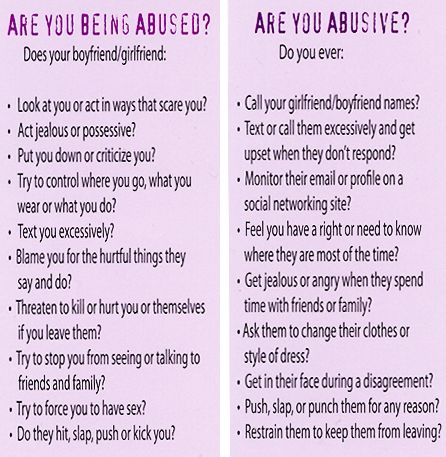 It is helpful to make a habit of having conversations at a certain time: after dinner with a cup of tea or a glass of wine, or an hour before bedtime, or during an afternoon walk.
It is helpful to make a habit of having conversations at a certain time: after dinner with a cup of tea or a glass of wine, or an hour before bedtime, or during an afternoon walk.
Partners should think about their motivation. Do you want to win the argument or get closer to each other? If one wants to hurt another, prove something, condemn, take revenge or put oneself in a favorable light, this is not communication, but narcissism.
A normal exchange of opinions does not necessarily lead to an argument. The benefit of regular thoughtful conversations is that they show that disagreements are normal and even useful. Each of us is an individual with our own opinions and personal boundaries. It's okay to disagree with each other. Healthy disagreements are even more beneficial for a relationship than automatically agreeing with your partner's every word.
But openness and tolerance are important here. Partners must be willing to listen and hear each other's points of view. It is helpful to put yourself in the other person's shoes and try to look at the situation from their point of view.
It is helpful to put yourself in the other person's shoes and try to look at the situation from their point of view.
Many couples are ready to talk about serious topics only in times of crisis. Try to discuss dreams from time to time, share ideas about the present and the future. You can start with the phrase "I always wanted to ...", and then the conversation can lead to amazing discoveries.
Good communication requires effort from both, everyone must be willing to take risks and take responsibility. Psychological counseling can help couples who seek comfort and security in their relationship and want to help each other grow and develop.
Text: Nikolai Protsenko Photo source: Getty Images
New on the site no one?”: what to do if a close friend starts ignoring you
“The new boss made my life hell. I have to leave, but I will lose my salary”
Photo session therapy: how to get to know yourself again on set
Don't be like Meghan Markle: 10 rules of etiquette to follow in the UK
"Mom, I hate you": how to save your relationship with your child
"My husband yells that I don't cook enough and eat it with my daughter.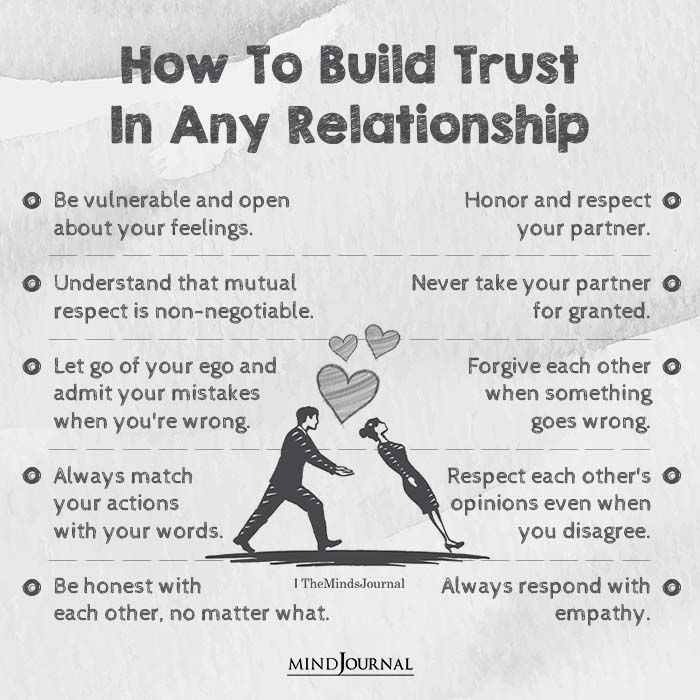 And I cooked 5 liters of borscht»
And I cooked 5 liters of borscht»
What to do in order not to quarrel? 5 tips from psychotherapist Philippa Perry – The City
Bombora Publishing House published a book by psychotherapist Philippa Perry “What a pity that my parents did not know about it (and how lucky my children are that now I know about it)” – 300 pages about building healthy relationships with your children. However, her recommendations will be useful for anyone who wants to find a common language with family, friends and other people. The City publishes an excerpt from the chapter "Your Child's Environment": it talks about the importance of talking about your feelings, and there is a quick reminder in case there is irritation and a quarrel is ripe.
How to quarrel and how not to quarrel
Quarrels occur in most families. What matters is how you handle (or don't handle) conflict, and how you handle (or don't handle) disagreements. Disputes by themselves do not always destroy relationships and, accordingly, a favorable environment for the child.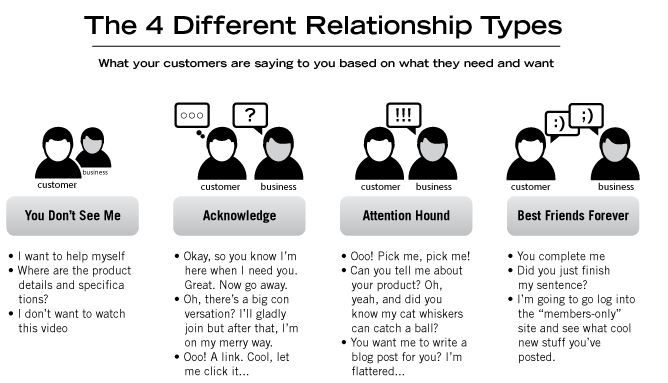 People who are in successful marriages and good relationships sometimes disagree and quarrel. It is a fact. But even after that, they continue to respect and appreciate each other, voicing contradictions and sharing their feelings.
People who are in successful marriages and good relationships sometimes disagree and quarrel. It is a fact. But even after that, they continue to respect and appreciate each other, voicing contradictions and sharing their feelings.
Now let's talk about the main elements of disputes. Every conflict has a subject. This is what you fight about. Then there are your feelings about this conflict and the feelings of other people. And then actions follow, that is, how you solve the problem.
To resolve disagreements, it is important to understand how you feel about the subject of the conflict and communicate it. The next step is to find out what feelings the subject of the conflict causes in the other person, and take them into account. Emotions aside, both sides get more and more heated, exchanging blows in a game I call "verbal tennis." They throw more and more arguments back and forth across the net in order to hurt each other as much as possible. With this behavior, the goal of the dispute becomes to score more points, and not to find an effective solution. It is possible to learn about the discrepancy of opinions and work through them only by trying to understand and find a compromise, and not by trying to win.
It is possible to learn about the discrepancy of opinions and work through them only by trying to understand and find a compromise, and not by trying to win.
Let's look at a typical family fight over washing dishes. Washing dishes is a subject of controversy, followed by how people feel about it. This is what happens when actions are limited to the exchange of facts.
SERVER: The problem is that when you leave dirty dishes in the sink, the leftover food on them dries up and doesn't clean up as well, so mine right away. 15-0
HOST: It takes me less time when I accumulate dirty dishes in a day and then wash them all together. 15-15
SERVER: Leaving unwashed dishes is unhygienic. 30-15
HOST: All bacteria will die when I wash, it doesn't matter when I do it. 30-30
SERVER: Flies flock to leftover food. 40-30
HOST: It's winter now. I don't see a single fly around the dirty dishes. Draw
And so on. When one of the partners runs out of arguments and is doomed to "lose", this does not add to him love and tenderness towards the opponent.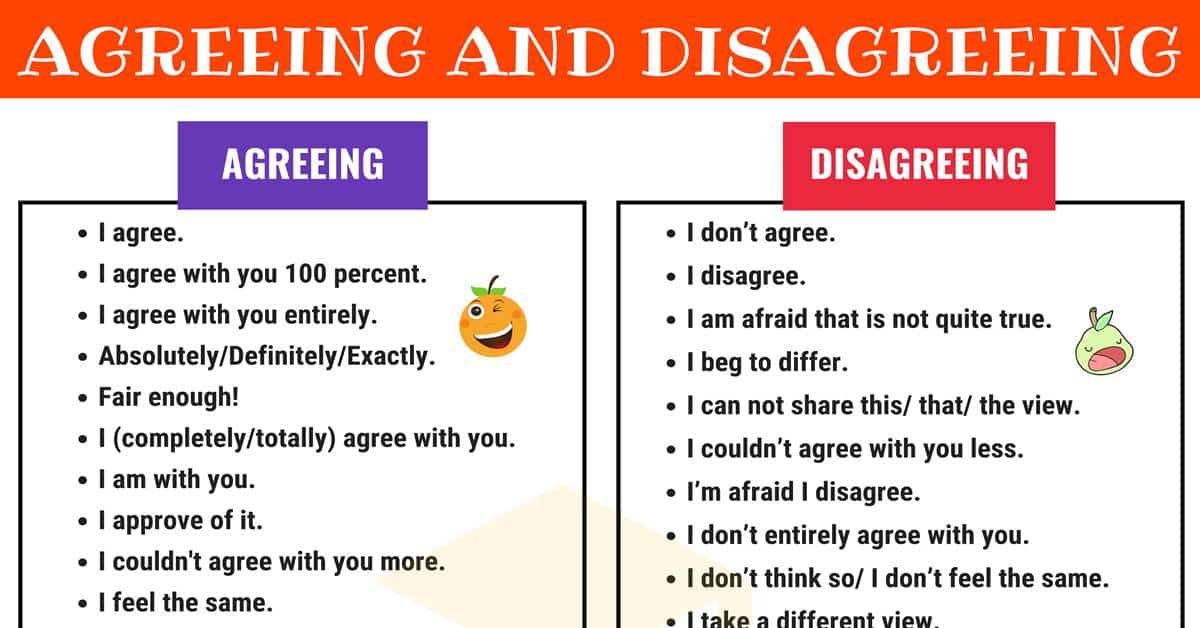 And the "winner" feels on horseback solely due to his other half.
And the "winner" feels on horseback solely due to his other half.
Another style of interaction in conflict and disagreement is what I call "Look: squirrel!", or distraction. Instead of voicing what's bothering you or your partner, you change the subject. So, when you see that the dishes are not washed, you do not indicate a problem, but say or do something else. This is not always a bad thing - it can be useful to postpone the conversation, but you can not completely avoid discussing contradictions. If you diligently avoid conflicts, you can lose the feeling of intimacy: dodging numerous taboos, you begin to bypass your partner, and then you feel lonely.
The third way to behave in an argument is to take the position of a martyr. In this case, when you come home, you say: “Don't worry about dirty dishes. I will wash." Unfortunately, in such situations, the "martyr" rarely manages to arouse remorse in others. Ultimately, he becomes offended and blames everyone around him or turns into a persecutor (see below) and pours insults.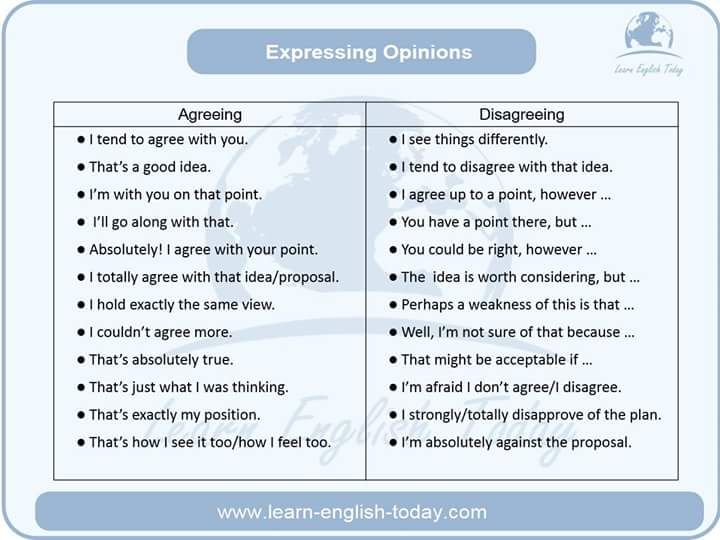
The persecutor attacks: “You're just a pig if you don't want to wash the dishes. How can you tolerate such filth? Ugh!" The one to whom this remark is addressed is immediately ready to attack in response.
None of these four types of interaction in conflicts contributes to a good family atmosphere. Fighting puts children on alert, threatens their sense of security, reduces their ability to be open and curious about the world. Instead, they have to shift their energy and attention into emergency mode.
How then is it better to argue? When working through the contradictions that have arisen, take them apart one by one and do not forget about the true subject of discussion. You should not accumulate your bad mood and bring it down on loved ones when it is no longer possible to restrain yourself. Start with how you feel, don't attack with accusations. So, if we go back to the dirty dishes...
“I'm so sick of leaving the clean kitchen every morning and having a pile of dirty dishes waiting for me after work.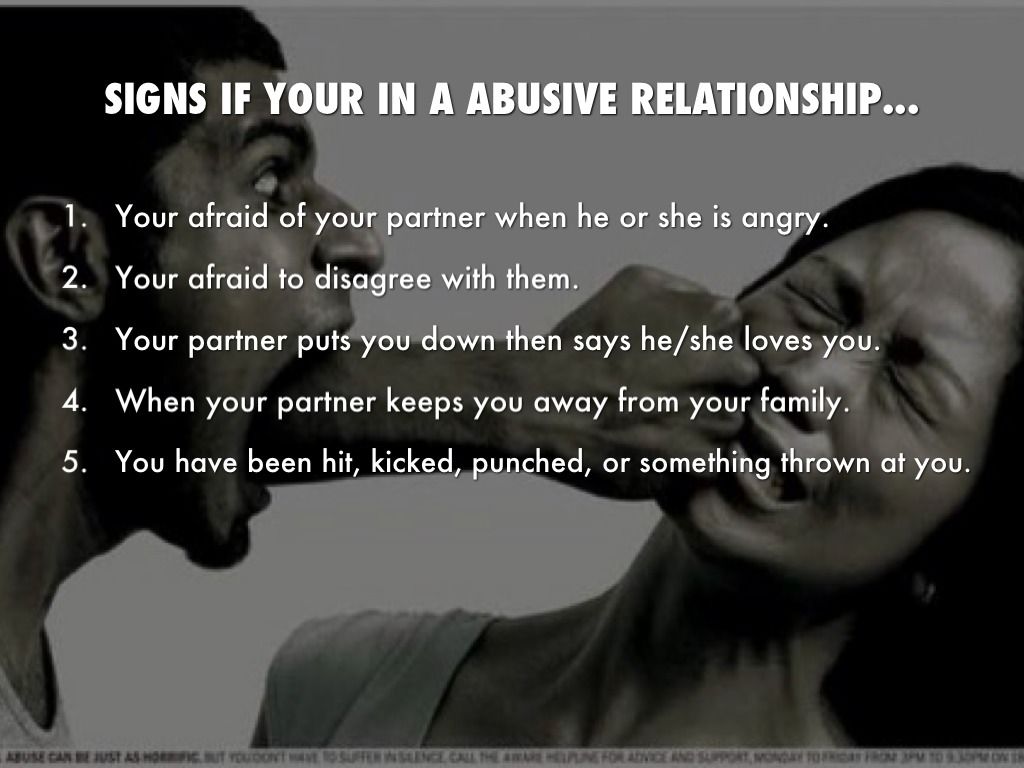 If you washed the dishes after you during the day, it would be much easier for me.”
If you washed the dishes after you during the day, it would be much easier for me.”
The ideal way is to think not about how to win, but how to understand the other. In response, you may hear: “I'm sorry, dear. I didn't want you to feel bad. I just have a lot of work. I understand that this is not the most pleasant picture that you want to see when you come home. And you can say: “Yes, you really got a lot. Okay, God bless him. Come on, you wash, and I wipe, what do you say?
The fundamental rule of argument is to use "I" instead of "you". For example: "I'm sorry that you don't answer me when you're on the phone," not "You ignore me when you're on the phone." No one likes to receive testimonials and ratings, especially negative ones. If instead, describe how you feel because of what the other person does or says, it will be about you, and it will become much easier to listen to.
Of course, no method of voicing complaints can absolutely guarantee "success", that is, to provide you with what you want to achieve.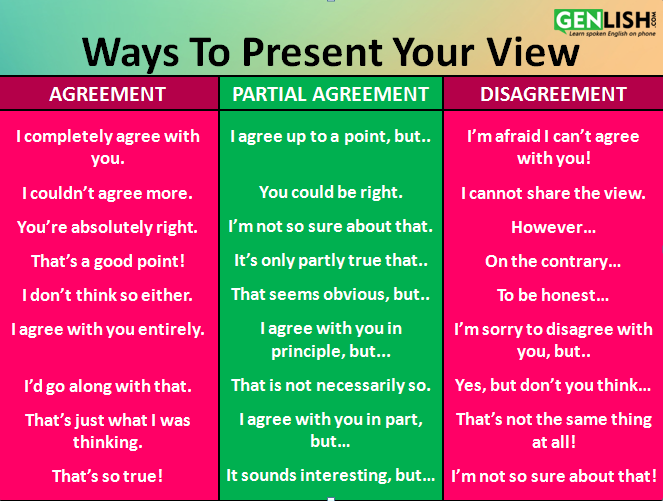 But successful interaction is not manipulation. This is a good relationship. Open expression of your feelings and desires promotes close relationships, while pulling the strings of a partner cannot achieve a strong connection.
But successful interaction is not manipulation. This is a good relationship. Open expression of your feelings and desires promotes close relationships, while pulling the strings of a partner cannot achieve a strong connection.
Using the pronoun “I” instead of “you”, confessing your own emotions and trying to find out how others feel is the best way to deal with the inevitable conflicts that arise in the family. Your child will feel more secure because this behavior reduces resentment and builds rapport. Also, he is likely to adopt a respectful and emotionally correct style of arguing, seeing the right example in front of him.
One of the first and main causes of disagreement is people's belief that they are attacked on purpose, although this is not the case. Let's take a typical family as an illustration. Let's call them the Heritage family.
Johnny, a twenty-two-year-old student, examines his father's old leather jacket. He says: “Dad, you are already a hundred years old, you will never wear this again.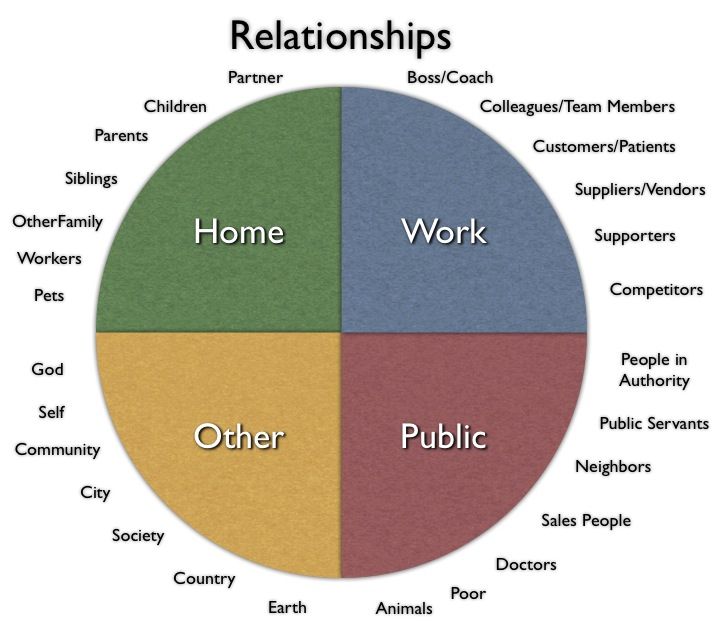 May I take it for myself?"
May I take it for myself?"
Keith, a teacher, feels like an old wreck after a bad day at work and futile attempts to understand his son's generation. Johnny got sick. Keith raises his voice, "What, can't you wait until I'm dead to start rummaging through my things?"
Johnny feels like the scandal has broken out of the blue, and he feels that he is being attacked. “Damn, I was just asking! Why are you always picking on me?"
"I'm not nitpicking, I just don't want you to act like I'm already dead."
This quarrel cannot be called serious. I'm sure Keith will end up throwing his jacket at Johnny and saying, "Here, take it." And Johnny will say: “I don’t need your junk. You still have to dress you in something to put in a coffin. They will both laugh and the incident will be over. But if they don't understand what really happened, they'll both be left with a bad taste and very likely something like this will happen again.
So let's see what's really going on. Imagine that a wise intermediary intervenes.
Imagine that a wise intermediary intervenes.
"He wants me dead," says Keith.
“Nothing like that. I want his jacket,” Johnny says.
"It's the same thing," says Keith, realizing that it's not.
The intermediary intervenes: “No, of course, not the same thing. But to you today, Keith, that's exactly what it sounds like. Except Johnny doesn't have to know about it. You, Keith, thought you were being attacked and hit back. And since Johnny didn't understand that you were feeling attacked, he got the impression that your reaction to his words was not caused by anything on his part. Naturally, he went on the counteroffensive.
"Yes, as far as I'm concerned, it is," Johnny says.
Keith is silent, so the intermediary convinces him, "Just because you feel like you're being attacked, don't jump to the conclusion that you really are."
"He said I was a hundred years old!" Kit defends.
Intermediary: “Yes, he hides his feelings behind arguments. He learned this from watching your games of "verbal tennis" from birth. If you look deeper, you seem to have a hard time coming to terms with age, so you cling to the symbols of your youth like a leather jacket. It's quite forgivable, so you can confess."
If you look deeper, you seem to have a hard time coming to terms with age, so you cling to the symbols of your youth like a leather jacket. It's quite forgivable, so you can confess."
A new version of the conversation could be:
“What a cool leather jacket. May I take it for myself?"
“We need to think… I understand that you really want her, but I'm not ready to part with her yet. I may never wear it again, but I need to get used to the idea of how old I already am. The things of my youth bring me comfort."
"I'm sorry, I involuntarily reminded you that you are already sixty."
"Don't worry, I should remember that. I feel like an old man because I don't understand some of my students."
"For example?"
"I just thought I understood something about social networks, when I hear "swipe left". What does he want to say?
“So, let me show you…”
Exercise: get to the bottom of it
Recall the last fight you had with your loved one. Instead of focusing on who was right and who was wrong, try to unfold what happened, as I did with the example of the clash between Johnny and Keith. Now - again, as was done in the example - look at the situation from the outside and work through the feelings of all the actors. Then take on the role of a wise mediator and think about what can be changed in the dialogue that led to disagreement and how to improve it. Below is a quick reminder of what to keep in mind when you have to talk about difficult topics, when you are annoyed or feel the inevitability of a fight:
Instead of focusing on who was right and who was wrong, try to unfold what happened, as I did with the example of the clash between Johnny and Keith. Now - again, as was done in the example - look at the situation from the outside and work through the feelings of all the actors. Then take on the role of a wise mediator and think about what can be changed in the dialogue that led to disagreement and how to improve it. Below is a quick reminder of what to keep in mind when you have to talk about difficult topics, when you are annoyed or feel the inevitability of a fight:
1. Communicate your feelings and take the other person's feelings into account. This is not the same as calling yourself "right" and the other "guilty" and does not mean calling yourself "smart" and the other "stupid". Nothing destroys relationships and families like a person who insists on being right. Instead of thinking in terms of "right or wrong", it's better to think about what each of you is experiencing.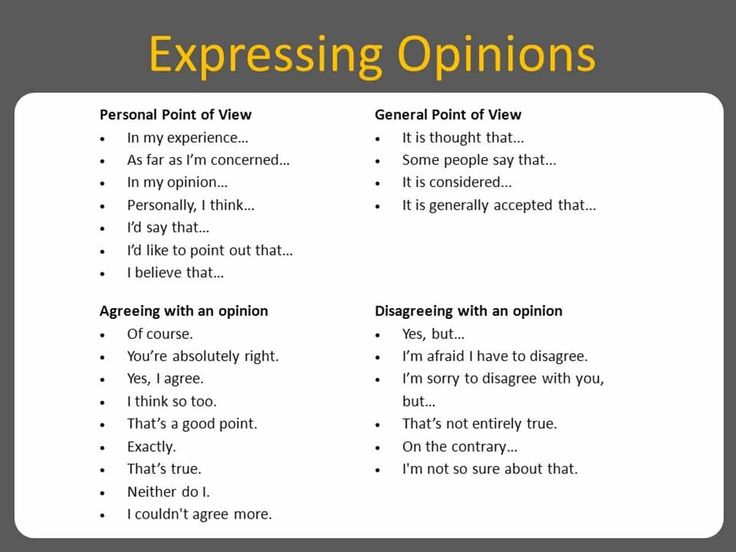
2. Build your boundaries, not the boundaries of another. To do this, use the pronoun "I", not "you".
3. Don't react - think. You don't always have to think things through before you react - I'm not asking you to lose your spontaneity. But if you are feeling annoyed or angry, I think it's a good idea to take a break and understand why this happened. If the Keith in the situation described above had done this, he would have realized that the anger he experienced in response to the question about the jacket was not really related to his son.
4. Accept that you are vulnerable instead of being afraid of it. In the example above, Keith would realize that he is afraid of aging and would rather hide this fear behind anger than show his vulnerability. But only by allowing ourselves to be vulnerable can we open up and build intimacy.
5. Don't make assumptions about other people's intentions. Trying not to get carried away by assumptions and projections of your emotions on others, try to find out how they feel and admit your mistake if you misunderstood them.








